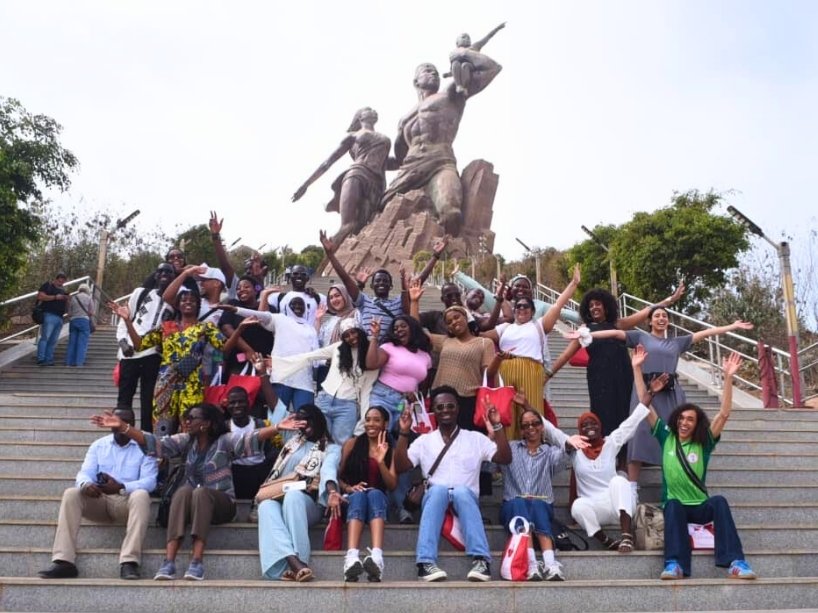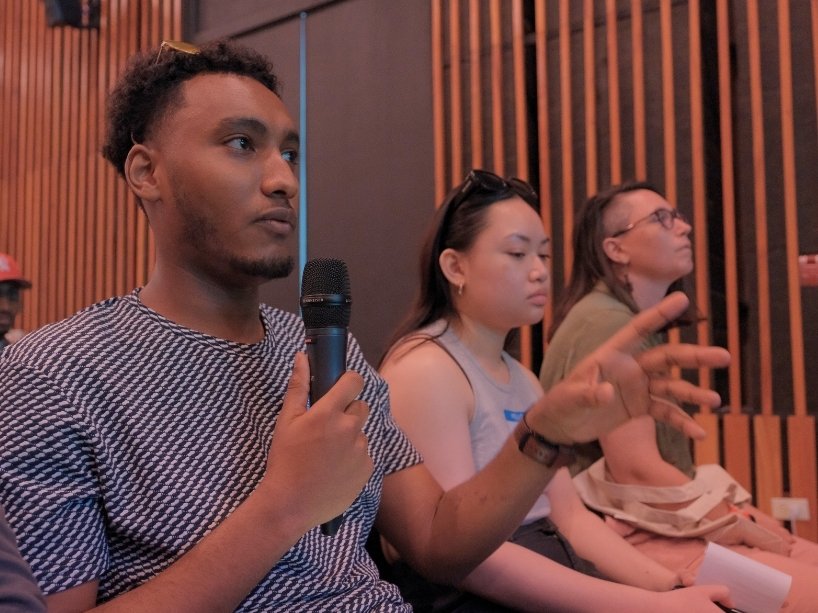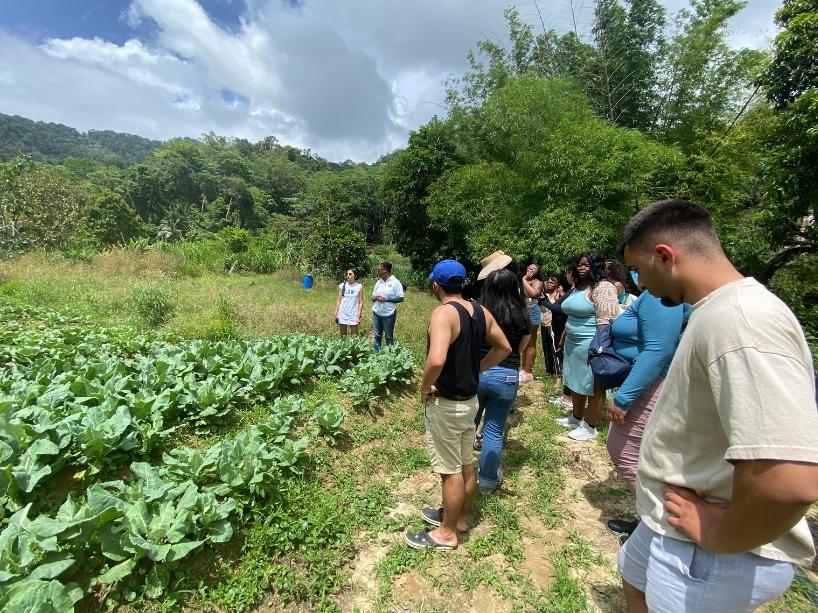TMU's Global Justice and Change program transforms students

Students in the African Studies and Beyond course explore cultural landmarks during their trip to Senegal. For Kwame Owusu-Ansah, this experience brought classroom concepts to life and inspired him to pursue more global learning opportunities.
When Toronto Metropolitan University (TMU) launched its Global Justice and Change (GJC) program in 2023, it gave students a chance to explore diverse topics through both local and global perspectives.
Now, as the pilot program ends, students who took part say it changes their lives in ways that go beyond earning credits.
"Many began their journeys feeling excited but nervous, especially those who had never traveled internationally," says Fana Mekonen, programs and equity specialist with TMU Global.
"When they returned, the transformation was evident. Students developed heightened global awareness, stronger empathy and a deeper understanding of cultural contexts," she continued.
The program received funding through the Global Skills Opportunity (GSO) initiative and gave scholarships to 67 GJC students among 114 total recipients. These scholarships removed financial barriers that often prevent students from learning abroad.
Beyond traditional study abroad
What made GJC different from traditional study abroad programs was its focus on building real partnerships with communities and working together rather than just watching from the sidelines.
"Our students engage deeply with places like Panama, Senegal and New Zealand (Aotearoa) by working alongside local partners, co-creating knowledge and exploring the complex systems that connect our global society," says Mekonen.
The program offered five courses led by faculty with personal and professional connections to non-traditional destinations. These included:
- "Films for Change: Film Festivals and Activism in Hispanic Culture" with travel to Panama taught by Enriqueta Zafra
- "Repositioning Women in Caribbean Agriculture" in Trinidad and Tobago led by Petra Roberts
- Hyacinth Simpson's "Literature of the Caribbean" with virtual collaborations with Jamaica
- "Haudenosaunee Leaders & Writers with Māori component" including travel to Aotearoa (New Zealand) with Brandon Tehanyatarí:ya’ks Martin
- "African Studies and Beyond" featuring travel to Senegal taught by Ndeye Ba.
Professional growth and personal transformation
Beyond coursework, students received comprehensive pre-departure training covering topics such as conflict management, financial planning, resiliency and career readiness.
This preparation helped them navigate unfamiliar environments while developing crucial professional skills.
"Students strengthened their teamwork, intercultural communication, conflict and time management, and adaptability," says Mekonen.
"Many used these skills to pursue further global learning opportunities, gain employment or continue their studies at the graduate level."
Abraham Russom, who travelled to Panama for the Films for Change course, experienced this growth firsthand.
After participating in the program, Russom joined TMU's team as a global learning ambassador and has since graduated and begun working as an urban planner.

Abraham Russom went to Panama for the Films for Change: Film Festivals and Activism in Hispanic Culture course. Russom's participation in the program revealed connections between film activism and urban planning that have shaped his professional career path.
"The program opened doors I never realized were available to me," says Russom. "One of the most impactful experiences was the trip to Panama, where we explored activism in Hispanic culture through film. It revealed the intersection between storytelling and disciplines like urban planning."
Kwame Owusu-Ansah, a student who participated in the African Studies course, travelled to Senegal. Inspired by a staff member's international experiences, Owusu-Ansah applied and was accepted to the program, which profoundly changed what he wanted to do for the rest of his academic journey.
"Being there made my studies feel more relevant and exciting because I could see firsthand how the concepts I learned applied in real-world situations," Owusu-Ansah says. "It's one thing to read about a topic in a textbook, but experiencing it in person brings a whole new level of understanding and interest."
Following his GJC experience, Owusu-Ansah sought out more global learning opportunities through exchange programs.
Jolen Kayseas, who participated in the Films for Change course in Panama City with Russom, found that the program helped him see global justice in a new light.
"Participating in the GJC program meant I could confront histories of colonization, identity and resilience, specifically through film," says Kayseas. "What stayed with me most wasn't just the content of the films, but the way the course encouraged me to connect emotionally and intellectually with issues far beyond Canadian borders."
The skills Kayseas gained were later put to use when he started working in international development research in Ghana.
Aminah Haghighi, who travelled to Trinidad and Tobago for the Repositioning Women in Caribbean Agriculture course, has since become a law student at Lincoln Alexander School of Law. Her experience studying how women in the Caribbean shape food sovereignty movements had lasting effects on her academic path.

Students in the Repositioning Women in Caribbean Agriculture course examine local farming practices in Trinidad and Tobago. For Aminah Haghighi, this field experience connected classroom theory to real-world food sovereignty issues and influenced her later research on community gardens in Toronto.
"The GJC program was a powerful opportunity to see the practical application of the theory I had been learning in the classroom," says Haghighi.
"What I learned through the GJC program directly informed my work as a research assistant with Sarah Elton, where we studied agrobiodiversity in one of Toronto's largest community gardens."
Lasting impact
Although the GSO funding has ended, the program's influence has stayed with students as they continue their studies or start their careers.
"Global learning is essential for all students," says Mekonen. "These types of immersive, global experiences stay with you forever, especially in an increasingly interconnected world."
The GJC program was made possible through funding from the Government of Canada’s Outbound Student Mobility Pilot Program. Partnerships through the Faculty of Arts and the Faculty of Community Services were instrumental in bringing this initiative to life.
Related:
- New TMU program gives students a chance to engage with topics on a global scale
- How applying to the Global Undergraduate Awards changed my life
- The Creative School: Global learning with an enterprise and export-focused NYC Hub